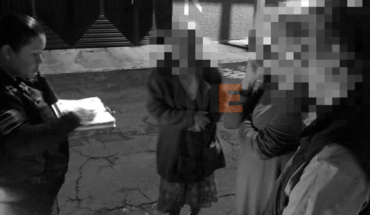VATICAN CITY (AP) — At first glance, postcards and handwritten letters seem innocent, even warm. He signs them “Uncle T” or “Your Uncle, Father Ted.” But the correspondence Cardinal Theodore McCarrick wrote to young people who accuse him of sexually abusing or harassing offers a look at the ways in which a predator prepares his prey, according to two abuse prevention experts who analyzed the letters for the Associated Press. Filled with flattery, familiarity, and power-clading, the letters reveal how a globetrotter bishop made vulnerable young people feel special, and then take advantage of them.
The AP publishes letters McCarrick wrote to three young men in the run-up to the Vatican report’s dissemination of who knew what and when he learned about the prelate’s efforts to sleep with future priests. Access to an archbishop by young people who want to be priests “is a key element in the process,” said expert Monica Applewhite.HELP US click on the Google News star and follow usPope Francis expelled McCarrick, 89, in February this year, after a church investigation determined that it had sexually abused seminarians, both adults and minors. The case has affected the credibility of the Catholic hierarchy, as McCarrick’s actions were denounced to church pillars in the United States and the Vatican, however McCarrick remained an influential cardinal until his fall from grace in the year Past. McCarrick stopped talking about the allegations and merely said in a statement last year that he was innocent, but accepted the Holy See’s decision to expel him from the ministry. His lawyer J. Michael Ritty also declined to talk about correspondence. The testimony of James Grein, 61, the first child named McCarrick, is a key element of Vatican research. The son of family friends, Grein said McCarrick began sexually abusing him when he was 11, even during confessions and at weddings and other celebrations. In an interview with the AP, Grein said that his family’s affection for McCarrick forced him to some extent to spend time with McCarrick on weekends, when he was not at boarding school, and that during those visits the religious abused him. “If I wasn’t going to see Theodore, my brothers, my sisters, or my father, they always asked me, ‘Why didn’t you go see him?”, Grein said. Letters without postmarks that were included in the letters McCarrick sent to his father.” The time for your visit to the east is approaching,” McCarrick wrote to Grein while boarding school at Woodside Priory School in California in the late 1970s. “I’ll call your house one of these days to see what they fixed.” I was signing “I love you so much, your uncle, Father Ted.” Applewhite says the letter makes it clear that McCarrick expected Grein to visit him, as did the family’s role in fixing that visit. A postcard the family could see, she added, is the most open form of communication and a way to show Grein that what McCarrick was doing to him wasn’t bad.” Sending a postcard is like saying ‘I have nothing to hide’,” Applewhite said. Last year, their victim seminarians began to comment that their former bishop treated them as his “sobrinos” and insisted that they say “Uncle Ted,” creating an informal family relationship that made it very difficult to report questionable behavior, According to Applewhite,Former seminarians recounted how McCarrick invited groups of young men on weekend fishing trips or home on the beach, always inviting one of others, forcing one to sleep in his bed. McCarrick denied having sex with anyone, but admitted that “an unfortunate lack of judgment” caused him to share his bed with other men, according to an email sent in 2008 to the Vatican.In correspondence with a seminarian from Metuchen after being appointed Archbishop of Newark, New Jersey, McCarrick spoke of his travels in the summer of 1987, when he went to Russia and Poland at a time when John Paul II was struggling to end communism in Eastern Europe. At the end of that year he told the young man that he had accompanied John Paul on his pilgrimage through the United States.” That’s a reminder of her influential position, that she has access to special privileges,” said Elizabeth Jeglic, a professor of psychology and sexual violence prevention expert at John Jay College of Criminal Justice in New York. He argued that the message he conveyed to seminarians was: “Come with me and you will have access to all this.” The seminarian later wrote to another bishop and told him that he had witnessed sexual relations between McCarrick and other seminarians during a fishing outing and that McCarrick had touched him when he stayed one night in the religious’s apartment in Manhattan that same summer. He said he threw up in the bathroom that day because of the trauma. Soon after, McCarrick wrote to him, “I wanted to thank you for coming on Friday night. I enjoyed your visit.” In eight letters written to the same seminarian, McCarrick repeatedly told the young man to call him to collect from his Newark office and gave him his direct phone number and details of his wanderings. He also urged him to visit him. He did so often that Jeglic says it was harassment and an effort to “have it at his fingertips.” We’ve got the house almost full, and by tomorrow they’ll be holding the chairs and maybe even the floor. But we’ll make room even for a big guy like you,” McCarrick wrote to him. McCarrick also alluded to an episode in which they met a Mafia-linked businessman who was killed soon after.” Thank God we didn’t go to dinner on Saturday night,” McCarrick wrote. “We would have ended up in the middle of a mobster beader.” In a later letter of August 28, 1987, written during a flight to Poland, McCarrick rementioned the murder with his usual fine print: “Come with your uncle and you will meet important people.”
Jeglic opined that the reference to mobster attack was a way to “generate a union from a secret.”
Another seminarian, the Reverend Desmond Rossi, was studying at the Immaculate Newark Conception when McCarrick was appointed archbishop of that city. He said McCarrick always made sure to greet his father during Mass and wrote to Rossi when he took a sabbatical in 1987.He told her that he had just met Juan Pablo during his trip to Miami and prayed for Rossi to return to habits.” You’re still part of the family,” McCarrick.Rossi says he now realizes that McCarrick was trying to lure him with the letter, especially with his reference to John Paul and that he was part of “the family.” A church archbishop tells a 25-year-old boy that he is interested in the priesthood he has just met with the pope,” Rossi said. “That’s kind of shocking.” Rossi was transferred to another diocese in 1989, following an encounter in which he said McCarrick brought his chair closer to his and touched his leg.
“At that moment I basically decided that I was leaving that diocese because it was really awkward,” Rossi said.
While considering himself someone who was rid of a stalker, Rossi admits that McCarrick was a charismatic and intelligent shepherd. Applewhite said abusers are not monsters, as reflected in McCarrick’s correspondence and concern for seminarians.” If we look for evil figures, we’re not going to catch anyone,” he said.





